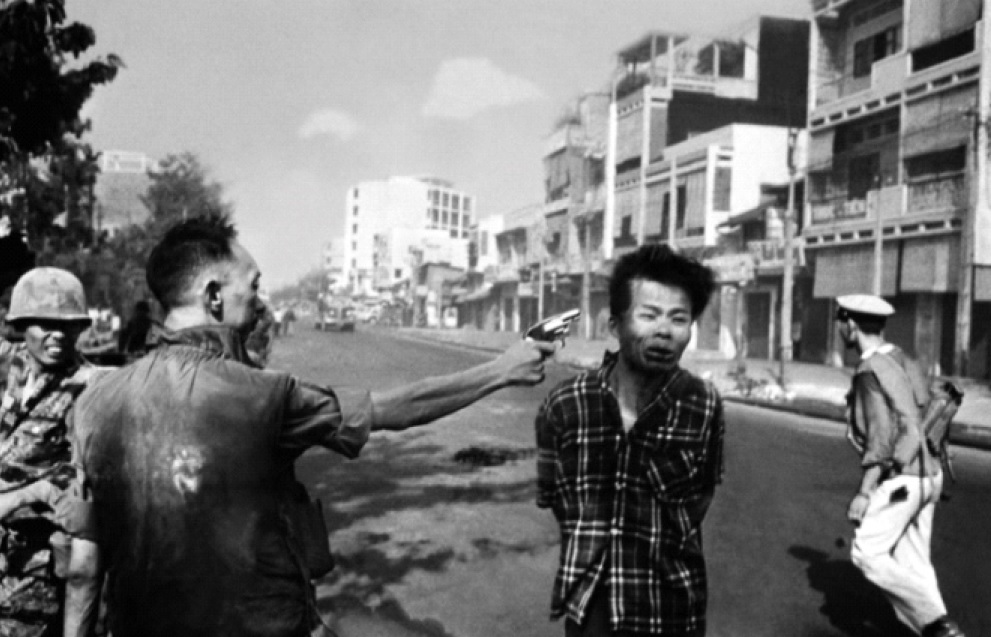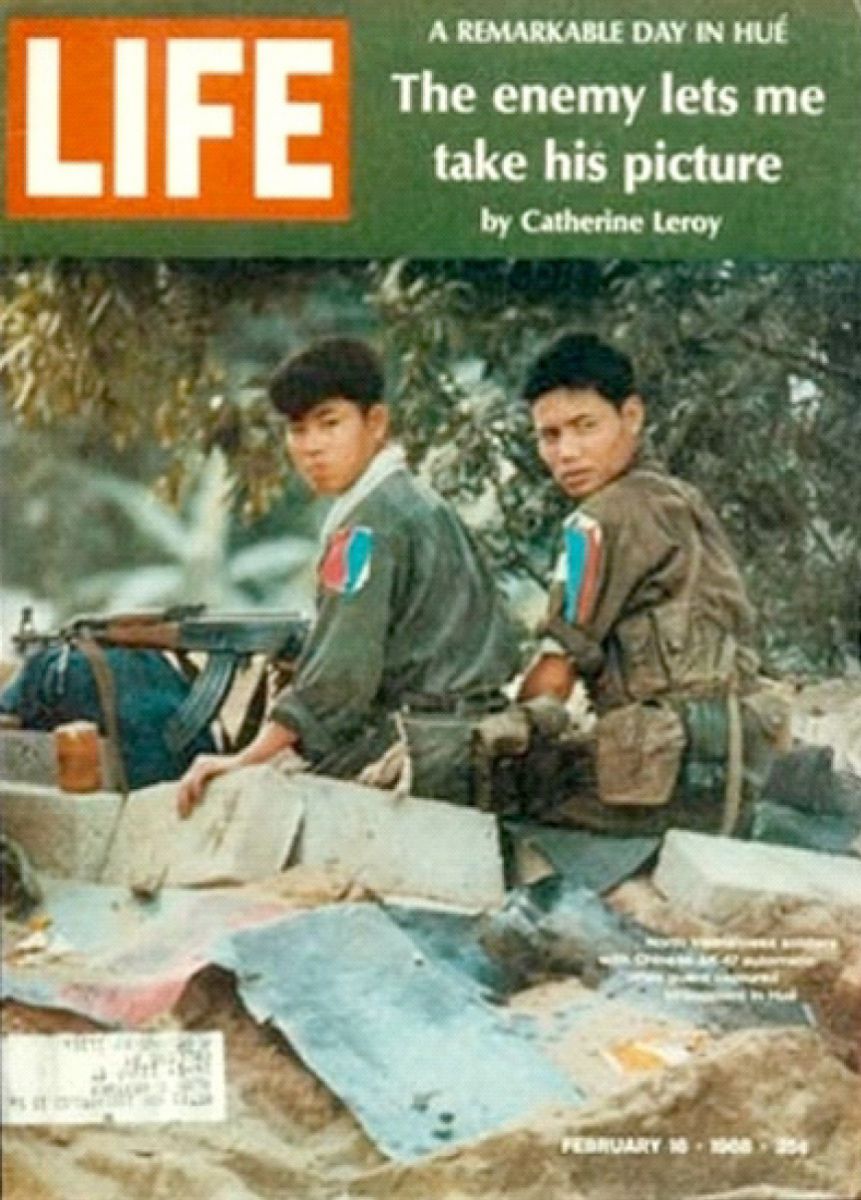During the Vietnam War, the number of Correspondents in Saigon was quite large and increased very fast. In 1960, there were only about 10 people, but until 1968, there were 179 American correspondents, 114 South Vietnamese correspondents, 171 of other countries, representing more than 130 newspapers and information and television agencies of many countries in the world. During and after 1968 Tet General Offensive of the National Liberation Front of South Vietnam (FLN), these numbers increased significantly and then decreased.
The US Militay Command in Saigon had a journalism contract, had some sensitive issues or military secrets that werent allowed not to be disclosed, if any journalist did not violate the prohibitions, they would enjoy some incentives: purchase goods at cheap prices at military supply stores; attend daily news reports, provide vehicles, hitchhike on military aircraft or vehicles to the battlefield, receive allowances to live in private media centers, etc... Those who did not cooperate, violated the agreements may be cut off these
benefits for a few months or permanently.
In the early years, under the period of President Kennedy, a majority of the press was on the side of the government, supporting the war, only some at the Associated Press (AP) showed their suspect and demanded evidence of advances that American advisory missions in Saigon reported daily.
For television, this was the first time a war had been broadcasted on television of every family, so the television absolutely supported the governmernt policies, deliberately avoided showing photos not beneficial to these policies. Fewer than 5% of the programs showed the violence of the war, only the scenes such as planes flied up and down on a green meadow, American soldiers leisurely climbed a hill. If there were photos of battles, those battles were already old, occurred weeks or half month ago, not hot any more. It was not until 1968, when there were serious events such as Tet General Offensive and uprising of the FLN, the audience in the US could have chance to see some truths. The scene recording General Nguyen Ngoc Loan pointing a gun to the head of a revolutionary soldier shocked the American people in response to such a violence. The images of dead or wounded American soldiers were strictly forbidden in order to avoid grief for families in case of identifying their loved ones. Major General Winemt Sidle, the officer in charge of the press and foreign affairs in Washington later commented: "Apart from some exceptional cases, most of the information about the war in Vietnam was beneficial to government policies, or only a small portion of the truth of what was happening on the battlefields was showed”. Military experts in Saigon often thought that sending correspondents to the front to witness the power of the American firepower, they would have to admire and believe in victory. But there were also some individuals who realized that there were inadequacies at the front, wasting the money of US taxpayers for useless battles, so they wrote critical articles and these articles were often removed or their sensitive contents were cut off.

“The Republic of Vietnam Police General Nguyen Ngoc Loan used shot by a pistol to the head of Nguyen Van Lem, a man suspected of Liberation Army member on a Saigon street during Tet General Offensive (1968)" of correspondent Eddie Adams.
With the huge communication apparatus oriented to the policies of Johnson government, the truth about the Vietnam War was hushed, making the American people understand the Vietnam war in an unclear manner in the first years of the 1960s. However, from 1966 and deeper in 1967, some officials in the US Congress who were responsible for conducting the war and only they knew the truth and gave an awareness that the US was getting bogged down in Vietnam.

Cover of Life Magazine, published on February 16, 1968: Vietnamese soldiers at a solid base that was regained from the US side in Hue of French photographer Pherine Leroy under the US Associated Press, was an event that produce a stir in the West.
1968 Tet General Offensive and uprising shocked correspondents in Saigon and the American media. The correspondents had long suspected the victory, at this time, they clearly saw that the Johnson government was dishonest and deceived the American people about unrealistic Victories.
On October 31, 1968, President Johnson announced to cease fire, ordered to stop bombing from the 20th parallel upward, and at the same time declared not to run for a second office term “to devote himself to the search for peace”. This statement made Nixon become_ disillusioned because that was the subject he was about to head out in the race to the White House. Nixon announced to voters not to search for peace any more but had a plan to end the war. Just elected in January 1969, President Nixon ordered withdraw troops, reduce intensity of war in the South Vietnam. In 1969, public opinion in the US was dispersed when a few people agreed to the quick withdrawal of the troops from Vietnam, while the majority of people demanded to escalate higher than Vietnam to win. In this situation, the US press also changed its attitude and orientation towards the statement of President Nixon “had plan to stop the war”, whenever any act deviating from the plan, it was criticized harshly. These criticisms from the American press had a great influence, strongly affected the growing anti-war movement and replicated the effects on both the Congress and American intellectuals. In addition, at this time, the heads of many newspapers were either retired or transferred to other positions, replaced by a generation that was younger, more enthusiastic and more sympathetic to the anti-war movemert.
During the last years of the war, the correspondents on the battlefield of South Vietnam wrote many articles reflecting the serious collapse of American soldier morale: their general mood was not to want them to the last dead in Vietnam; disobeying orders to go to battle; they had long hair with unshaven beards; wearing improper uniforms ... Some senior commanders that responded to those prohibited the Correspondents from to go to the units, is very difficult to apply for the permit and accompanied by a soldier of the base. They did not provide vehicle, rarely invite to attend meetings for news reports and only provided news that were no longer topical and no longer useful.
The articles written by correspondents on the battlefield of South Vietnam in an effort to force the whole world to understand the facts about the Vietnam War as seen by the correspondents had a strong impact on American public opinion. The press contributed to forcing the US to make decision to withdraw troops from Vietnam, facilitating the complete liberation of the South in 1975. At the same time, the US press changed the political opinion of the American people from supporting the war in the early years came to doubting the purpose of the war and ultimately fighting against the war. Not only that, however, the press also changed itself when the type of investigation was established in the heart of the war and continued to flourish in the wars of the United States in the future.
Nguyễn Thị Thu Sương
Propaganda - Foreign Affairs Group